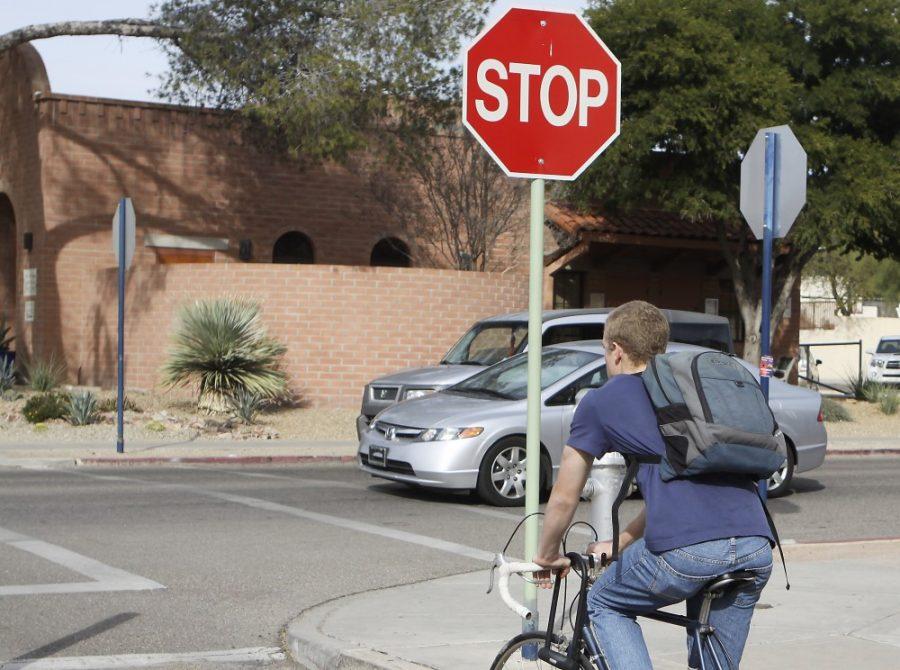Proposed legislation that would allow bicyclists to treat stop signs as yield signs may make police jobs easier, according to a state representative.
Daniel Patterson, a Democrat representing Legislative District 29, has proposed the Arizona Bike Safe Yield Act, which would allow cyclists to pass through stop signs as long as there is no traffic. The proposed legislation is based off a current law in place in the state of Idaho, Patterson said.
“I think it would be great for U of A students, people who work at the U of A and those living in Arizona because it allows you to get around more efficiently and will eliminate the potential stress of being unnecessarily pulled over by police for something that shouldn’t be in violation of the law,” Patterson said.
The biggest complaint cyclists in Tucson have is that the Tucson Police Department and University of Arizona Police Department officers stop and ticket them for failure to come to a complete stop, Patterson said, even when there is no oncoming traffic. The legislation will make it easier for law enforcement and everyone on the road, Patterson added.
The current law states that bicyclists must treat their bicycle as a vehicle and come to a complete stop at a stop sign. Failure to do so can result in a $174 fine, according to Sgt. Juan Alvarez, the UAPD public information officer.
“With the university community there’s a large mixture of pedestrians, people on bicycles and cars,” Alvarez said. “It’s important that when you come to a stop sign that you do come to a complete stop so that you avoid running into somebody else.” He declined to comment on Patterson’s proposed legislation.
The current law poses some problems for cyclists who encounter a lot of stop signs on their routes, as well as for those who ride with clipped in pedals and must unclip at every stop sign, Patterson said.
“I never really stop for stop signs in the first place,” said Tesher Cohen, a pre-business freshman, who has received a citation for failing to complete a stop. “I find it really pointless. I think cars should yield to the bike rider, even though bikes are considered to be vehicles.”
Some students, however, believe the proposed legislation will prove dangerous for bicyclists.
“I guess it’s an inconvenience, but not an unnecessary one,” said Sarah Dischinger, a chemical engineering junior, who says she hits at least three stop signs on her bike ride to school. “I would be worried if it (the bill) were to pass that there would be more accidents, because I feel like I would slow down even less.”
The proposed legislation will not allow bicyclists to cut across traffic, but will force them to yield to oncoming traffic. Only if the roads are empty can bicyclists safely bypass the stop sign and cycle through.









